GOD
and the
ANCIENT
CHINESE
Samuel Wang
and
Ethel R. Nelson
Read Books Publisher
Dunlap, TN
All Scripture quotations in this books are from the New King James Version of the Holy Bible (unless otherwise designated). NKJV copyright 1979, 1980, 1982 by Thomas Nelson, Inc., Used by permission.
Copyright 1998 by Samuel Wang
Published by Read Books Publisher
HCR 65, Box 580
Dunlap, TN 37327
All rights reserved. No part of this publication may be reproduced, stored in a retrieval system, or transmitted, in any form or by any means, electronic, mechanical, photcopying, recording, or otherwise, without the prior written permission of Read Books Publisher.
ISBN 0-937869-02-3
Library of Congress Catalog Card Number: 99-70410
DEDICATION
To the Holy Man who died on the cross, and to the Chinese and the world for whom He died.
ABOUT THE COVER PAINTING
ARTIST: Li Wei San
And someone will say to Him, What are these
wounds in your hands?
Then He will answer, Those with which I was
wounded in the house of my friends.
(Zechariah 13: 6).
About the Authors

Poetry is to express ones will, and writings to convey the Dao [Tao, the truth].
This is a faithful Chinese saying.
The great Dao of Heaven and the teachings of early Chinese kings and sages were faithfully recorded in ancient Chinese writings over a period of 2,000 years before Christ. Yesteryears lessons are always todays blessings. Much can be learned, by modern Chinese and Westerners alike, from the way God dealt with the ancient Chinese.
God and the Ancient Chinese is a unique, comparative study of the Chinese classics with the Bible. It is a witness to the true Light which gives light to every man who comes into the world, (John 1: 9), and to the truth that God shows no partiality. But in very nation whoever fears Him and works righteousness is accepted by Him. (Acts 10: 34, 35). The God of the ancient Chinese is the God of the Bible.
To write such a book is beyond anything I could earlier have imagined. I was born into a farmers family near the Yangtze River. My father had only six months of education in school. His total learning was from the so-called Four Books , a collection of Confucius and Mencius teachings, which he had memorized. Ours is a large familyit always takes two tables to have everyone seated at family gatherings. At the time of a family reunion in my parents home, my father would always recite from these Four Books. He especially liked The Works of Mencius . This tradition has come down for years, with the same teachings being repeated time and time againnow even the third generation can repeat the stories and sayings. These occasions give special opportunity for the younger generation to be educated in the great traditions of these ancient writings, woven together with our parents deep love for them. The effect has been tremendous.
But my father no longer had these books in his possession. His only set, which had been well kept in a fine wooden box, was carried away with everything else in the house in a flood before I was born. But we learned that even before he could understand them, he had been required to memorize all the books. That was the practice for teaching young Chinese students in his day. I can never forget the scene when my father saw the gift I brought for his very important 70th birthday. He jumped up from his chair to receive the Four Books in a modern edition, tears running down his wrinkled face. For a long time, he stood there speechless, holding the volume as he would the hands of a long lost friend.
In 1994, I went home for another celebration of my fathers birthday. Since I had recently accepted Jesus Christ as my best Friend and Saviour, this time I presented my father another bookThe Holy Bible. After reading it carefully, he said that the teachings of Jesus were even greater and clearer than those of the Four Books. You may have correctly concluded already that both of my parents became the first Christians in their village. They have since turned their home into a house church.
My interest in the Bible was first kindled by attending lectures in social linguistics given by John Evans, an American teacher in my graduate program. Mr. Evens always closed his class by analyzing a Chinese character, and relating the corresponding story recorded in his favorite Book, a phrase that he used in a communist classroom, indicating the Bible. All the students were amazed to see the integral connection of Chinese characters to the Holy Bible. Later Mr. Evens gave me a copy of Discovery of Genesis , the book he used for his character study in the class. That was my first acquaintance with the name of Dr. Ethel Nelson, the other author of the present book. Dr. Nelsons character-study books have planted the seeds of Heaven in the hearts of many modern Chinese, including myself. I realized and accepted for the first time the most obvious and scientific fact: modern Chinese come from the ancient Chinese; and the ancient Chinese came from God, not from Peking Man!
If our Chinese characters could entail so much information about God, how much more should the ancient writings, written with these characters, reveal God to us. As you have seen, my interest and love for the Chinese Classics were implanted in my heart when I was very young, and I have always wanted to understand these books which were so dear to my father. Since studying them myself, a new world has opened for me. My parents ready acceptance of Christianity convinced me more than anything else that there must be a close connection between the teachings of Chinese sages and of Jesus.
Jesus said to the Jews, For had you believed Moses, you would believe Me, for he wrote about Me. But if you do not believe his writings, how will you believe My words? (John 5: 46, 47). This should also be true for those who love and believe the ancient Chinese sages, for they also wrote of Him, as you will find out in this book.
All of these happenings led me to the idea of writing this book. It is my special honor and pleasure to work with Dr. Nelson, whose input has helped make this book possible. We both believe that it is divine Providence that led us to collaborate. The Chinese idiom, to weed through the old and bring forth the new, (  ), holds the same principle as what Jesus said in Matthew 13: 52: Therefore every scribe instructed concerning the kingdom of heaven is like a householder who brings out of his treasure things new and old. Of course, neither of us is a scribe or a scholar of the Chinese Classics in any sense, yet things new and old were discovered in our humble effort. It is our wish that, in the light of the Bible, this book will restore the teachings of the ancient kings and sages that have been distorted, and be of some help in kindling the ancient love for God in the hearts of the Chinese.
), holds the same principle as what Jesus said in Matthew 13: 52: Therefore every scribe instructed concerning the kingdom of heaven is like a householder who brings out of his treasure things new and old. Of course, neither of us is a scribe or a scholar of the Chinese Classics in any sense, yet things new and old were discovered in our humble effort. It is our wish that, in the light of the Bible, this book will restore the teachings of the ancient kings and sages that have been distorted, and be of some help in kindling the ancient love for God in the hearts of the Chinese.
I especially want to thank Dr. David Lin, who, incidentally, baptized me in a bathtub in Shanghai, and more recently has taken pains to critically review this manuscript and encourage us in pursuing this important study. Our special thanks are extended to Bob Smith and Wayne Senner for their generous help. My appreciation goes to Dr. and Mrs. Yew Por Ng who brought Dr. Nelson and myself together. Jeff and Christy Reich have given us their support in many ways. The cover painting was produced by the artist, Li Wei San, after several telephone conversations to China, where he lives. Terri Prouty helped design the cover, and assisted with copy editing. My personal thanks goes to Dr. Drew Liu and Dr. Andrew Lai, whose friendship and help have been a living witness to me that we do have a loving Father in Heaven. I am also greatly indebted to Dr. Charles Taylor, Dr. and Mrs. Sukachevin, Traci Lemon, Mr. and Mrs. Shen, Dr. and Mrs. Dai, Dr. Samuel Young, Pastor Joseph Jiao, Dr. Joseph Hwang and all my church family, and all those supporting our study in many ways.


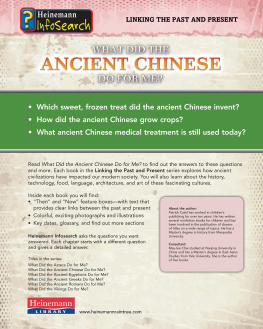
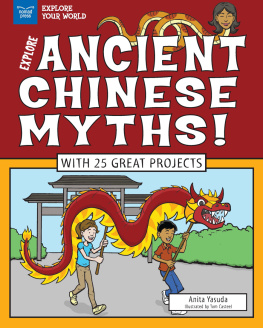
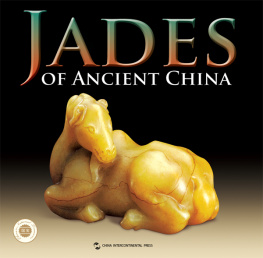
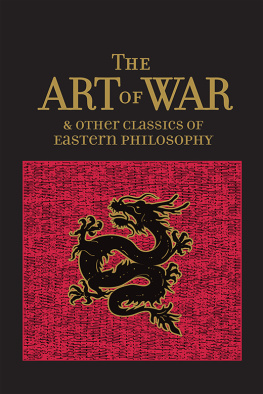
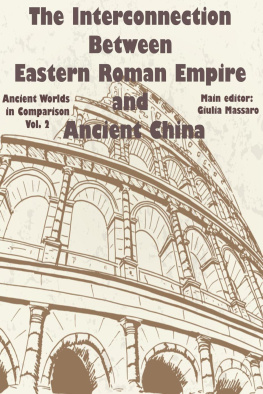
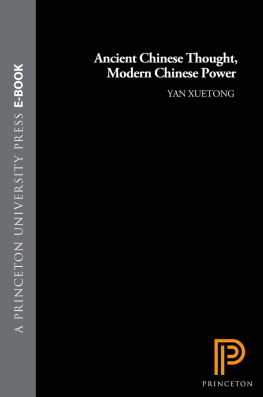
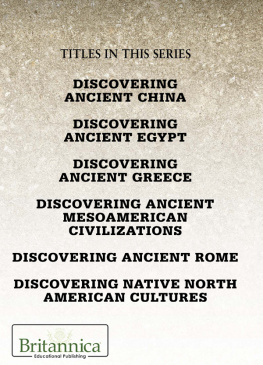
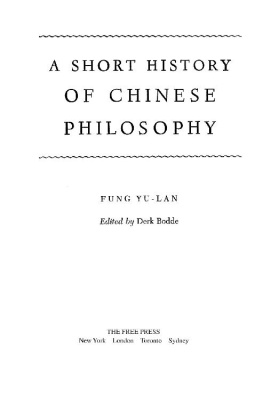
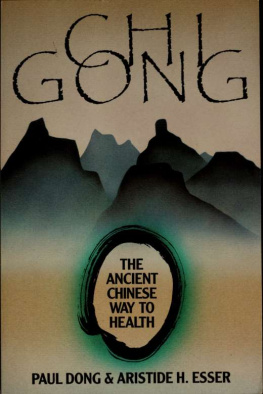



 ), holds the same principle as what Jesus said in Matthew 13: 52: Therefore every scribe instructed concerning the kingdom of heaven is like a householder who brings out of his treasure things new and old. Of course, neither of us is a scribe or a scholar of the Chinese Classics in any sense, yet things new and old were discovered in our humble effort. It is our wish that, in the light of the Bible, this book will restore the teachings of the ancient kings and sages that have been distorted, and be of some help in kindling the ancient love for God in the hearts of the Chinese.
), holds the same principle as what Jesus said in Matthew 13: 52: Therefore every scribe instructed concerning the kingdom of heaven is like a householder who brings out of his treasure things new and old. Of course, neither of us is a scribe or a scholar of the Chinese Classics in any sense, yet things new and old were discovered in our humble effort. It is our wish that, in the light of the Bible, this book will restore the teachings of the ancient kings and sages that have been distorted, and be of some help in kindling the ancient love for God in the hearts of the Chinese.